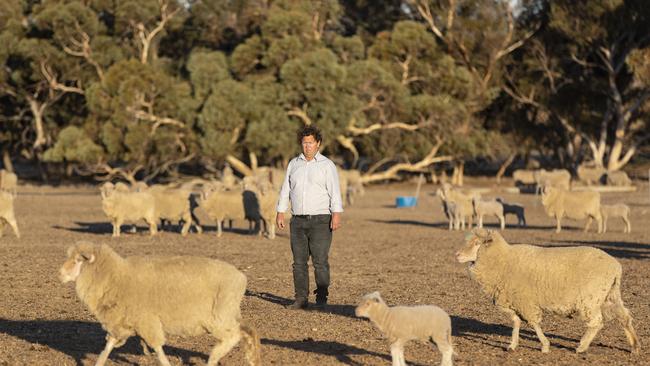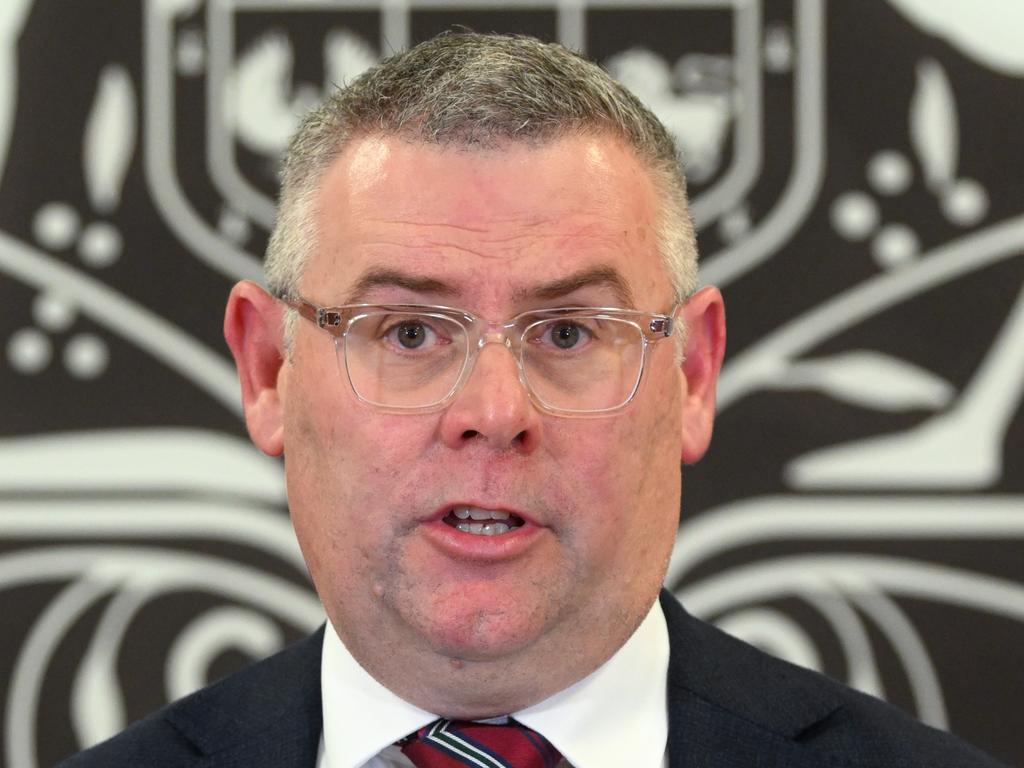Struggling WA farmers say the ban is ‘tone deaf’
Already battling drought, farmers say the shutdown of live sheep exports will have a significant impact on mental health.

Wool producers battling drought in Western Australia say the Albanese government’s decision to end the live sheep export trade from May 2028 will have a devastating impact on the mental health of farmers and rural communities.
While animal welfare organisations have praised the announcement, the WA state government, farmers and industry groups roundly criticised the federal government for its “betrayal” of rural Australia and the small size of the $107m assistance package that is supposed to help producers transition away from live exports.
The Coalition has vowed to save the trade if it wins the next election, with Opposition leader Peter Dutton saying the shutdown would have “enormous consequences” for Australian jobs and agriculture.
Many farmers in WA, where sheep exports are based, have already blamed the government’s proposal, which until Saturday did not have a set date, on low sheep prices that have led to some having to shoot their stock.
Wool producers say that without live exports they will have fewer options for their older sheep because there is virtually no domestic mutton market and the Middle East, which values mutton, wants live animals for religious slaughter practices.
The Australian has seen graphic photos, taken in the past few weeks, of sheep shot in paddocks because their owners did not have enough pasture to feed them but could not sell them or even give them away.
Steven Bolt, who breeds merino sheep in the central wheatbelt district of Corrigin, said the announcement would have a severe impact on farmers already struggling through drought.
The government’s own transition package acknowledged the mental health issues the announcement would cause by including funding for mental health services and financial counselling.
“It will have huge devastating emotional effects not only the farmers but the whole community,” Mr Bolt said.
“Australia as a country has lost its way where we’ve allowed activists to dictate to government how agriculture should be conducted.
“We’ve ignored the science and we’ve ignored the truth and the WA sheep industry is going to bear the brunt and the consequences of this decision.”
Distance, population and reduced meat processing capacity mean the WA sheep industry operates in a distinct market from the eastern states, but the live export trade has offered a buffer to local price volatility.
Woodanilling wool grower Bindi Murray said the “tone deaf” Albanese government had abandoned the wool industry at the behest of animal rights activists.
“What happens if the activists take a dislike to whatever we transition to?” Ms Murray said.
“I’m in disbelief at the callousness of the way that they’ve announced this. The ministers surely have to understand the conditions in WA at the moment. Our rural businesses and rural communities are already doing it tough.”
Agriculture Minister Murray watt attempted to justify the government’s decision on Saturday, saying it was fulfilling an election commitment and that the live export industry was in “long-term decline”.

“The live sheep industry in Australia, and let’s remember it’s only WA that does the live sheep exports these days, that industry is worth $77 million to the national economy, while sheep meat exports are worth $4.5 billion a year, and that figure is growing, and in addition to those exports, domestic demand for sheep products is up these days to $3.5 billion,” he said.
Farmers say the controversial trade has significantly improved its practices since 2018, when thousands of sheep died aboard livestock vessels due to overcrowding and excessive heat.
The Australian Alliance for Animals welcomed the decision, saying the Albanese government had listened to concerns.
“We also welcome the government’s recognition that this policy builds on our nation’s values of compassion and ethical treatment of animals, and the investment of $2.6 million in animal welfare measures as part of the transition package,” spokesman Jed Goodfellow said.
Industry groups were particularly offended that Senator Watt’s announcement on Saturday came just after his visit to Rockhampton for Beef Week where he stood alongside farmers and professed support for the red meat sector.
“This announcement further erodes what little trust existed between producers and the federal government and this will leave them and their rural communities behind.” Sheep Producers Australia CEO Bonnie Skinner said.

Wool Producers Australia CEO Jo Hall said it showed “complete disregard” for the situation in WA.
“The timing of this announcement cements the commonwealth’s utter lack of understanding of our industry,” Ms Hall said.
“Producers are seeding, carting water, supplementary feeding, and many currently lambing, how much more stress are they expected to bear?”
Mr Dutton said the Coalition supported the live sheep exports.
“This ideological and reckless decision to shut down this industry will kill country towns and jobs across regional Western Australia,” Mr Dutton said.







To join the conversation, please log in. Don't have an account? Register
Join the conversation, you are commenting as Logout